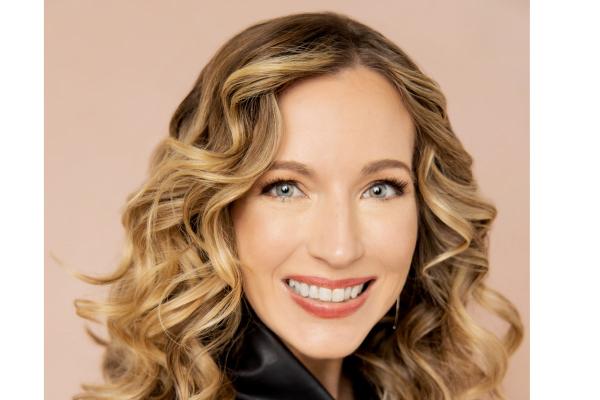
Sociologist Tricia C. Bruce has dedicated her career to trying to understand American Catholics' attitudes and behavior.
She will draw on that experience in her new role as a consultor to the General Secretariat of the Synod, which she expects to include listening to diverse voices and considering broad questions, she said.
"I'm just curious," she told OSV News Feb. 20. "I come with questions. I don't come with an agenda or something that I'm trying to do or get out of this. I just really want to serve in the best way that I can, and especially activate my own particular expertise as a sociologist to do that."
Bruce, 44, was among six people named consultors to the General Secretariat of the Synod Feb. 17. Of the secretariat's 16 total consultors, 12 are priests, one is a religious sister and three, including Bruce, are laywomen. Most are theologians.
Cardinal Mario Grech, a native of Malta, oversees the General Secretariat of the Synod, an institution of the Holy See tasked with organizing and implementing synods of bishops. It is currently overseeing the 16th Ordinary General Assembly Synod of Bishops, known as the Synod on Synodality, with the theme "For a synodal Church: communion, participation and mission." After a two-year preparatory period, the synod convened in October 2023; a second and final meeting is scheduled for Oct. 2-27.
Bruce, 44, a parishioner of the Cathedral of the Most Sacred Heart of Jesus in Knoxville, Tenn., earned her doctorate in sociology from the University of California, Santa Barbara, in 2006. She is an affiliate of the University of Notre Dame's Center for the Study of Religion and Society and the director of Springtide Research Institute, a nonprofit founded in 2019 under the Minnesota-based Lasallian Educational and Research Initiatives to study young people ages 13-25. Springtide has published four annual reports on the state of religion and young people.
Bruce has written on personal parishes and diversity, the emergence of the Voice of the Faithful organization in response to clergy sexual abuse, and American attitudes about abortion. She also has co-edited books on polarization in the U.S. Catholic Church and the forces shaping American parishes.
In 2021, she published an interview study of Catholic women's views on ministry and the diaconate, finding "many women feel specifically called to be deacons or express an openness to discerning such a call should the vocational path become available to them."
She also managed qualitative data collection for the recent National Study of Catholic Priests from The Catholic Project at The Catholic University of America.
Bruce describes herself as "a sociologist deeply invested in the Catholic Church and understanding religion, and religion and society more broadly."
"That's taken a variety of different dimensions," she told OSV News. "Some of the threads through that inquiry throughout my career have been trying to use the tools of social science to really understand the diversity of experiences, backgrounds and attitudes that make up the tapestry of the church" and "identifying and amplifying and listening to a diverse array of voices that constitute the Church."
As a consultor, Bruce anticipates using her expertise to help synthesize the perspectives and ideas shared in the synod meetings, but she acknowledged that exactly what her role entails is, at this point, still somewhat of "a mystery."
"The synodal process is not just starting. I'm coming in at a moment when there's already so much there — there's a mountain of momentum and of voices," she said. "I would hope that one of the ways I might be able to contribute is to say, 'How do we begin to kind of sort through and synthesize and look for those areas of commonality and difference among so much that has been shared and heard throughout the different touchpoints of this process to date?' So, in the language of social sciences, I see it as an exercise in coding."
Please read our Comments Policy before posting.
Article comments powered by Disqus Vatican groups study important issues raised at synod
Vatican groups study important issues raised at synod
 U.S. bishops to hold new rounds of listening sessions
U.S. bishops to hold new rounds of listening sessions
 2023 Year in Review: Community, teamwork prove pivotal
2023 Year in Review: Community, teamwork prove pivotal
 Bishop Barron criticizes synod’s report on morality
Bishop Barron criticizes synod’s report on morality
 10 things to know about upcoming Synod on Synodality
10 things to know about upcoming Synod on Synodality
 Don’t let misconceptions cause faith to waver
Don’t let misconceptions cause faith to waver
 Seniors, whatever storms may come, Jesus will be there
Seniors, whatever storms may come, Jesus will be there
 Studio 3:16 offers new approach to teaching religion
Studio 3:16 offers new approach to teaching religion
 After three decades, NLR principal plans to retire
After three decades, NLR principal plans to retire
 CHS athlete overcomes odds to reach collegiate goal
CHS athlete overcomes odds to reach collegiate goal
 St. Joseph a model of solidarity with immigrants
St. Joseph a model of solidarity with immigrants
 Two gifts after Jesus’ death: Virgin Mary and Eucharist
Two gifts after Jesus’ death: Virgin Mary and Eucharist
 Why we have an altar, and not just a communion table
Why we have an altar, and not just a communion table
 Pope: Wars should be resolved through nonviolence
Pope: Wars should be resolved through nonviolence
 Living relationship with Jesus Christ in the Eucharist
Living relationship with Jesus Christ in the Eucharist